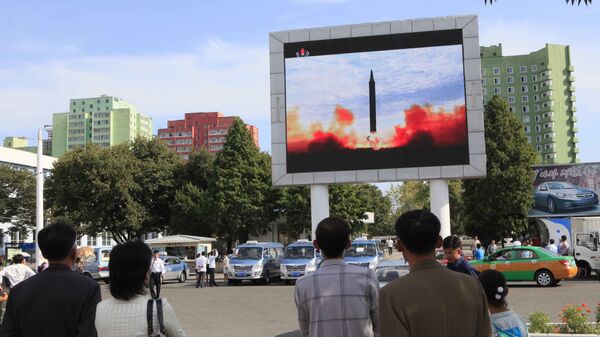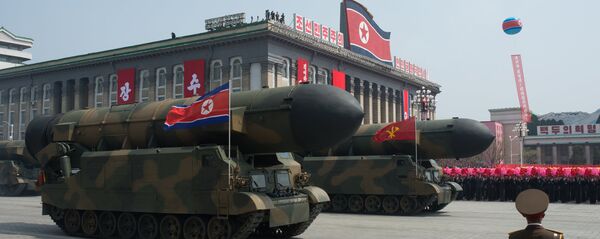SOCHI (Sputnik) – Russia’s and North Korea’s existing projects in trade and economics will not be frozen but new projects will not be implemented, Russian Far East Development Minister Alexander Galushka said Tuesday.
“Most likely no projects will be frozen. They were already frozen earlier. New projects which could have been implemented will not be implemented in these conditions. The projects and directions of cooperation where cooperation was developing earlier, will continue to develop,” Galushka, who chairs the Russia-North Korea intergovernmental commission, told reporters.
The statement comes after Russian President Vladimir Putin signed a decree on measures needed to implement UN Security Council sanctions on North Korea on October 16. According to the document, Russia will cease cooperation with Pyongyang on science and technology and close bank offices in North Korea. North Korea should also cease using any property in Russia for anything other than diplomatic or consular activities.
The UN Security Council adopted new, toughest yet, sanctions on North Korea on September 11, capping crude oil import and banning textile exports from North Korea. The move followed Pyongyang's sixth nuclear test carried out on September 3, with North Korea claiming to have successfully tested a hydrogen bomb.




